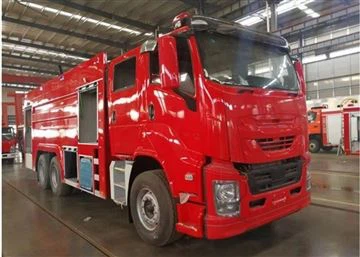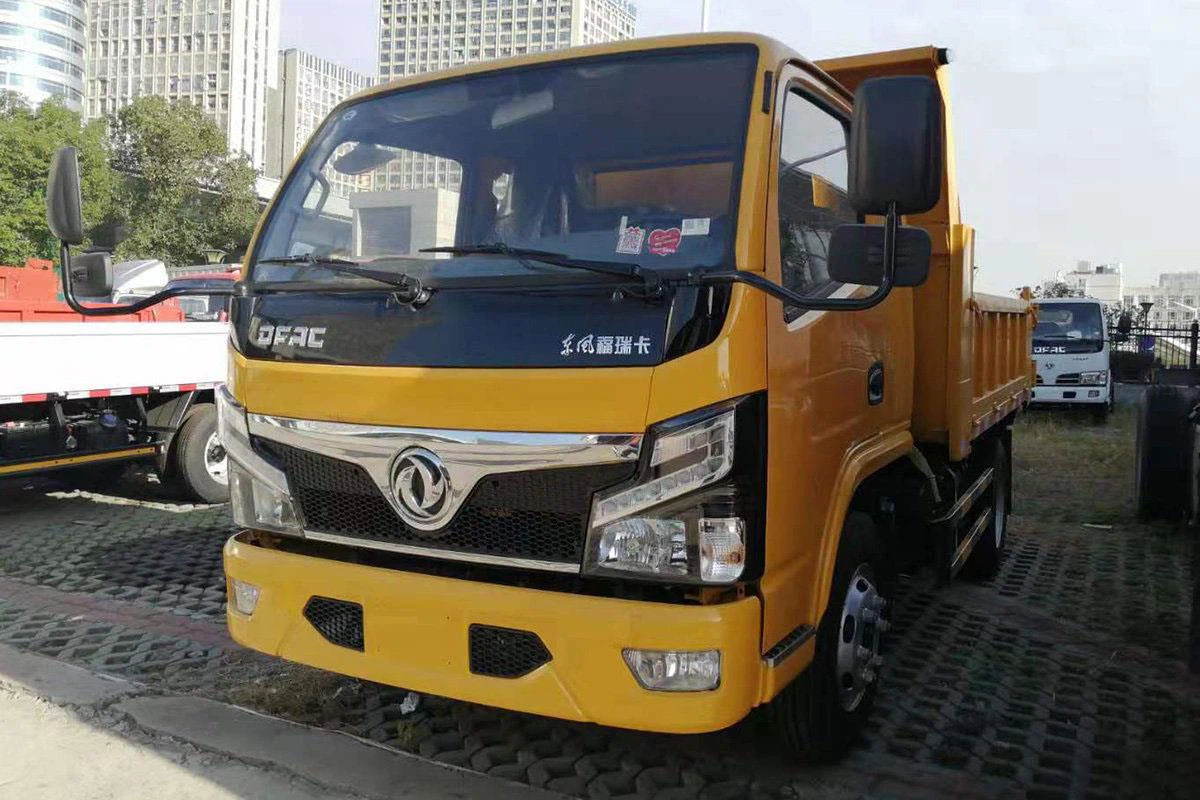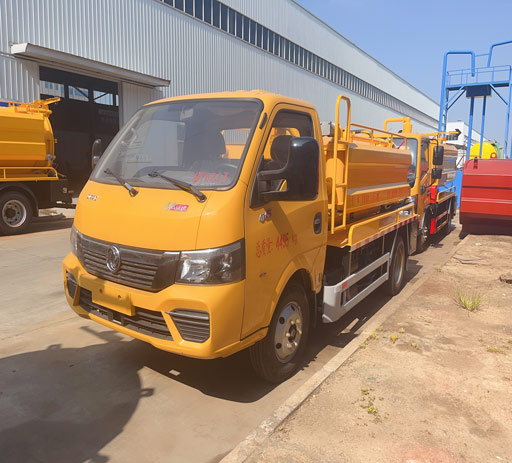Cesspool Truck: Everything You Need to Know

The cesspool truck, often known as a vacuum truck, plays a crucial role in waste management and sanitation services. It is designed to collect and transport hazardous waste, sewage, and other fluids from locations that are not connected to the municipal sewer system. These trucks are vital tools in maintaining public health and environmental safety.
Understanding Cesspool Trucks
What is a Cesspool Truck?
A cesspool truck is a specialized vehicle equipped with a large tank and a vacuum system. It is designed to suck up liquid waste, such as sewage, from cesspools, septic tanks, and portable toilets. These trucks can also be used to empty grease traps and conduct emergency clean-ups during overflow situations.
How Do Cesspool Trucks Work?
The primary function of a cesspool truck is to collect waste. Here’s a step-by-step breakdown of how they operate:
- Preparation: The driver prepares the area around the cesspool or septic tank, ensuring that the site is safe for operation.
- Connection: A large hose is attached to the cesspool or septic system. The hose can reach deep into the tank to access the waste.
- Vacuuming: The tank’s powerful vacuum pump creates suction, drawing out the waste and transferring it into the truck’s holding tank.
- Transport: Once the tank is full, the truck transports the waste to a designated treatment facility or landfill.
- Disposal: Upon arrival, the waste is safely disposed of following local regulations.
Types of Cesspool Trucks
Standard Vacuum Trucks
Standard vacuum trucks are the most common cesspool trucks. They are fitted with a vacuum pump and storage tank to handle various waste types, including sewage, sludge, and oily water.
Combination Trucks
Combination trucks feature both vacuum and jetting capabilities. This means they can both suck up waste and clean sewer lines via high-pressure water jets. This versatility allows for comprehensive maintenance of sewage systems.
Grease Trap Trucks
Grease trap trucks are specifically designed to handle waste from grease interceptors used in restaurants and commercial kitchens. They help prevent clogging in municipal sewage systems caused by fats, oils, and grease.
Key Features of Cesspool Trucks
Tank Capacity
The capacity of cesspool truck tanks typically ranges from 1,000 to 6,000 gallons, depending on the truck’s size and purpose. Larger capacity trucks are preferable for commercial applications, while smaller tanks can suffice for residential services.
Vacuum Pumps
The efficiency of a cesspool truck heavily relies on its vacuum pump. Common types include rotary vane, positive displacement, and liquid ring pumps. The choice of pump determines the truck’s suction power and how effectively it can draw out waste.

Safety Features
Modern cesspool trucks are equipped with numerous safety features, including:
- Emergency Shutoff: A manual shutoff to stop operations in case of an emergency.
- Overfill Prevention: Sensors that alert the driver when the tank is nearing full capacity.
- Spill Containment: Systems to contain any accidental leaks during transport.
Importance of Cesspool Trucks
Public Health
Cesspool trucks play an essential role in public health by preventing wastewater buildup that could cause health hazards. Regular pumping of septic tanks helps avoid system failure, which can lead to unsanitary conditions and pollution.
Environmental Protection
Proper waste management through cesspool trucks helps protect groundwater and local ecosystems. By safely removing and treating waste, these trucks mitigate the risk of contaminants causing harm to the environment.
Choosing the Right Cesspool Truck Service
Factors to Consider
When selecting a cesspool truck service, consider the following factors:
- Experience: Look for companies with a solid track record in cesspool and septic services.
- Equipment: Ensure they use modern, well-maintained trucks and equipment.
- Licensing and Insurance: Verify that the service is licensed and insured for waste removal.
- Reviews and Recommendations: Seek feedback from past clients to gauge the company’s reliability.
- Pricing: Obtain quotes from multiple companies to ensure competitive pricing.
DIY vs. Professional Service

While some homeowners may be tempted to handle septic tank pumping themselves, it is highly advisable to hire a professional service. The risks associated with improper handling of sewage are significant, including health hazards and potential legal issues.
Cost of Cesspool Truck Services
Factors Affecting Cost
The cost of cesspool truck services can vary based on several factors:
- Service Type: Emergency services often charge more than routine maintenance.
- Tank Size: Larger tanks require more time and resources to pump out.
- Location: Service costs may be higher in remote areas due to travel time.
- Frequency of Service: Regularly maintained tanks may cost less to service compared to neglected systems.
Average Pricing
| Service Type | Average Cost |
|---|---|
| Residential Pumping | $150 – $300 |
| Commercial Pumping | $300 – $800 |
| Emergency Services | $500+ |
| Grease Trap Service | $200 – $500 |
Environmental Regulations and Compliance

Federal Regulations
In the United States, cesspool trucks must comply with several federal regulations concerning waste disposal, including the Resource Conservation and Recovery Act (RCRA). These regulations ensure safe handling and treatment of hazardous waste.
State and Local Regulations
Compliance varies by state and municipality. It is crucial for cesspool truck operators to be familiar with local laws regarding waste disposal and obtain the necessary permits for operation.
FAQs about Cesspool Trucks
What is the typical lifespan of a cesspool truck?
A cesspool truck can last anywhere from 10 to 20 years with proper maintenance, but its lifespan heavily depends on usage and care.
How often should I have my septic tank pumped?
Generally, septic tanks should be pumped every 3 to 5 years, depending on household size, water usage, and system type.
What happens if you don’t pump your septic tank?
If a septic tank is not pumped regularly, it can overflow, leading to sewage backups in your home and potential contamination of local water sources.
Can cesspool trucks handle hazardous waste?
Yes, many cesspool trucks are equipped to handle hazardous waste, but specific regulations and certifications are often required for this type of service.
How can I maintain my septic system to avoid the need for frequent pumping?
Regular maintenance includes mindful disposal practices (no flushing non-biodegradable items), planting vegetation wisely, and using water efficiently.
Are cesspool trucks available for emergency services?
Yes, many cesspool truck services offer emergency pumping and cleaning to address urgent situations such as overflows or blockages.
